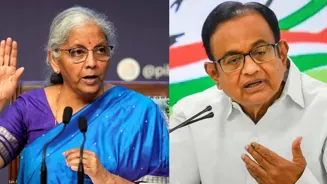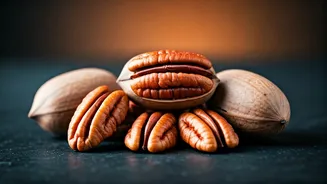He added in his post on X, "It will be interesting to speculate on what drove the government to make the changes:
Sluggish growth? Rising household debt? Falling household savings? Elections in Bihar? Mr Trump and his tariffs? All of the above?"
Trinamool Congress (TMC) leaders also claimed credit for one of the biggest changes, the exemption of GST on health and life insurance premiums. Party MP Mahua Moitra said West Bengal Chief Minister Mamata Banerjee had written to Finance Minister Nirmala Sitharaman more than a year ago demanding relief, which was granted only after "pressure from US tariffs and people's anger".
"This rollback proves the BJP acts only when cornered," the TMC said in a statement, calling the earlier tax on insurance "cruel and anti-people".
GST rationalisation explained
Announcing the outcome of the 56th GST Council meeting, Sitharaman said the four-tier system of 5%, 12%, 18%, and 28% would be replaced with a simpler two-rate structure - 5% and 18%. A special 40% slab will apply to luxury cars, tobacco products, and aerated drinks once compensation loans to states are repaid.
The changes, effective September 22, will reduce taxes on dozens of daily-use items. Food staples like roti, paratha, paneer, and pizza bread will now attract no GST. Ice cream, biscuits, ghee, butter, dry fruits, jams, and fruit juices will fall to the 5% bracket, down from 12% or 18%.
Household goods including soaps, toothpaste, shampoo, toothbrushes, talcum powder, and hair oil will also shift to 5%. Consumer durables such as televisions, washing machines, and air conditioners will see their tax rate fall to 18% from 28%. Cement will also move to the 18% slab, while motorcycles up to 350cc and smaller cars will benefit from the reduced rate.
The council also decided to exempt all individual life and health insurance policies, including family floaters and reinsurance, from GST. Until now, these were taxed at 18%.
Revenue Secretary Arvind Shrivastava said the rate rationalisation will cost the Centre and states an estimated Rs 48,000 crore but argued the impact would be “fiscally sustainable” and could even improve compliance.
Sitharaman said the reforms were designed with a "focus on the common man" and would support labour-intensive sectors, agriculture, and healthcare. "I think it will have a very positive impact on the GDP," she told reporters after the day-long meeting.
She asserted that all state finance ministers had backed the decision unanimously. "Key drivers of the economy have been given prominence," she said.
The timing of the reform coincides with India facing stiff new US tariffs of 50% on exports.














